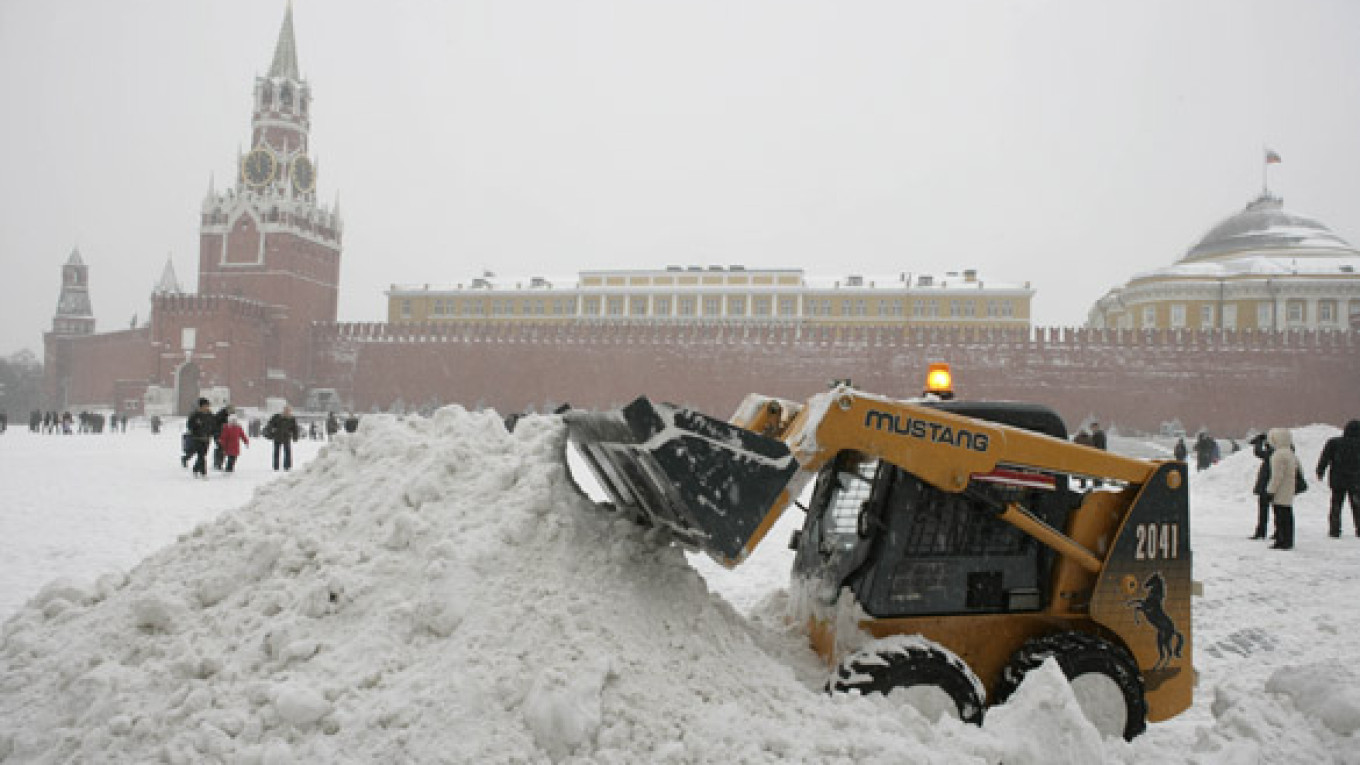Moscow will blast clouds from the sky this winter to save money on snow removal, a city official said Wednesday, but the plan threatens to anger the surrounding region, which would have to cope with the extra powder.
Airborne snowfall prevention will save the city about 300 million rubles ($10.2 million) this winter, said Andrei Tsybin, head of City Hall’s department for public works and utilities. Moscow is ready to spend about 180 million rubles to disperse clouds “in the event of very big and serious snowfall,” he said at a news conference.
Mayor Yury Luzhkov is a long-time proponent of fighting clouds by spraying liquid nitrogen, silver, or cement particles into the cloud mass, which forces precipitation to fall before it can reach the capital and spoil holidays like Victory Day and City Day.
Last month, Luzhkov proposed expanding the technology to fight the snow drifts that snarl traffic every winter.
“What if we force this snow to fall beyond Moscow? The Moscow region will have more water, bigger harvests, while we will have less snow,” he said at an award ceremony for Moscow’s best-kept yard.
He said that using the Air Force to prevent massive snowfall would be three times cheaper than using the regular system of trucks and snow-melting stations.
The city approved the proposal in record time.
A spokesman at the public utilities department could not explain how a “big and serious snowfall” would be identified or be deemed worthy of deploying the Air Force.
“The mayor has said it will only be a couple of times per winter,” he said, without further explanation. The department declined to provide information on how much the city budget allocates to cleaning and processing snow.
The Moscow budget, larger than New York’s at 1.152 trillion rubles ($39 billion), is on its way to a deficit of 182 billion rubles this year, three times more than originally planned.
Officials in the Moscow region have long criticized Luzhkov’s tampering with the weather.
“We’ll need additional money for removing the snow, where will we get it?” Pavel Lykov, who works in the region’s public utilities and transport department, told the Izvestia newspaper. “When they prevent clouds in Moscow in the summer, the cucumbers turn yellow. … The question is: is it safe?”
Winter cloud treatment may be even more problematic. While rain dries, snow accumulates, creating traffic problems if it is not removed, said an expert from the Institute for Urban Economics, speaking on condition of anonymity because he does research for the Moscow government.
“The traffic jam will continue all winter, affecting Moscow government officials themselves as they commute from their villas outside the city,” he said, referring to the Mayor’s Office on Tverskaya Ulitsa. “The only way for them to get to the city would be by helicopter.”
A Message from The Moscow Times:
Dear readers,
We are facing unprecedented challenges. Russia's Prosecutor General's Office has designated The Moscow Times as an "undesirable" organization, criminalizing our work and putting our staff at risk of prosecution. This follows our earlier unjust labeling as a "foreign agent."
These actions are direct attempts to silence independent journalism in Russia. The authorities claim our work "discredits the decisions of the Russian leadership." We see things differently: we strive to provide accurate, unbiased reporting on Russia.
We, the journalists of The Moscow Times, refuse to be silenced. But to continue our work, we need your help.
Your support, no matter how small, makes a world of difference. If you can, please support us monthly starting from just $2. It's quick to set up, and every contribution makes a significant impact.
By supporting The Moscow Times, you're defending open, independent journalism in the face of repression. Thank you for standing with us.
Remind me later.


